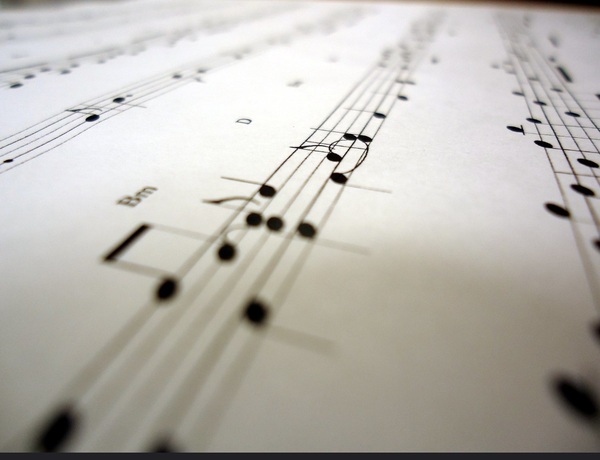
–>
November 20, 2022
“The man that hath no music in himself, nor is not moved with concord of sweet sounds, is fit for treasons, stratagems, and spoils.” – Shakespeare, Merchant of Venice
‘); googletag.cmd.push(function () { googletag.display(‘div-gpt-ad-1609268089992-0’); }); }
I once wrote: “There is more of life in a Chopin mazurka than in all of Margaret Mead’s writings.” It was a remark not intended as a disparagement of an anthropologist’s work but as a comment on music that goes beneath the surface of things, where the essential value of music to life may be found. This deepest matter of music is something that few anthropologists have much to say about.
“Music is so naturally united with us,” said Boethius (480 – 524 AD), “that we cannot be free from it, even if we so desired.” This “metaphysic” helps explain, I think, why audiences have thrilled (and still do) to excelling compositions of music, regardless of their era of production.
An important insight on the relation of music to life comes to us from composer Felix Mendelssohn who in 1842 wrote:
‘); googletag.cmd.push(function () { googletag.display(‘div-gpt-ad-1609270365559-0’); }); }
“There is so much talk about music, and yet so little is said. For my part, I believe that words do not suffice for such a purpose, and if I found they did suffice I would find I had nothing more to do with music. People often complain that music is too ambiguous, that what they should be thinking as they hear it is unclear, whereas everyone understands words. With me it is exactly the reverse, and not only in regard with an entire speech, but also with individual words. These, too, seem to me so ambiguous. so vague, so easily misunderstood in comparison to genuine music which fills the soul with a thousand things better than words.” [1]
 To understand what Mendelssohn was getting at, think of what gives words their meaning in the first place. Since each word is defined by other words, is this not ultimately a circular pass-the-book game, in which the actual meaning of any word is missing? (Could this be the conundrum on the mind of Rodin’s “Thinker”?)
To understand what Mendelssohn was getting at, think of what gives words their meaning in the first place. Since each word is defined by other words, is this not ultimately a circular pass-the-book game, in which the actual meaning of any word is missing? (Could this be the conundrum on the mind of Rodin’s “Thinker”?)
In however many ways it has been expressed, the intimate relation of music to life has been acknowledged in every culture. It is an intimacy that I, as a musician, am especially close to, affecting many of my thoughts regarding reality. This is perhaps why the art of composition holds a special interest for me. And so, for what they are worth, here are some thoughts of my own on the subject.
At the moment of creative conception, facing the vastness of possibilities of arranging tones, rhythmic patterns, and other basic elements of musical formation, a composer plays (or is played) between the poles of complexity and simplicity. To bring forth order from chaos the composer must continually balance the extremes of tension (“complexity”) and serenity (“simplicity”) in order to fill the time dimension with musical sound. The points of balance chosen by a particular composer deliver a musical self-portrait, as it were, along with the music created.
Because the spectrum of expression in the language of music is wider and richer than that of words – a reason why music takes over in movies where words cease to communicate – sentiments and meanings close to the heart and the mind of the musical artist are likely to be more directly and vividly expressed than in words.
This is naturally true of music that is treated as music. Music as ornament or “filler” of some kind to tantalize or distract the senses is insincere and irrelevant to the task of making music “speak.” Let it be clear that I am speaking of music intended for the listener’s full attention, and “tuning out” is not an option.
‘); googletag.cmd.push(function () { googletag.display(‘div-gpt-ad-1609268078422-0’); }); } if (publir_show_ads) { document.write(“
I speak of music conceived as an independent art, not as an embellishment of spoken information or accompaniment to political statements. Such use of music plays loose with a part of culture that by its nature serves to enrich life.
My study of many composers has made me aware of some who like Brahms work to attain the greatest effect from the least of means – a way of “making something out of nothing,” musically speaking. Facing the vast possibilities of articulating tones in a timeline calls for a good measure of discipline. In lighter music this factor of “restraint” may be recognized in music like that of Duke Ellington and composers of pop music with a serious appreciation for their craft. The “let-it-hang-out” group includes, in the classic vein, composers like Milhaud, and, in the pop vein, ad lib artists who compose as they play.
It is beyond the power if words to describe how a composer reaches a balance between “jumping” and “holding back” (spontaneity and restraint) in the “sparking zone” of musical creation. Such knocking on the door of the mind for what’s in the heart has nevertheless been attempted. Edgar Allan Poe went straight to the matter in “The Philosophy of Composition” where he details how he applied a rigorous mental approach to the composition of “The Raven”!
Can successful musical composition be so straightforward and cerebral? I don’t think so. Puccini struggled to pull forth from his mind the fluid melodies of his operas. Mozart “copied what was in his head” while Beethoven labored slavishly to shape what was in his head into music.
“You may ask me where I obtain my ideas,” wrote Beethoven in 1823. “I cannot answer this with any certainty: they come unbidden, spontaneously…I may grasp them with my hands in the open air, while walking in the woods, in the stillness of night, at early morning. Stimulated by those moods which poets turn into words, I turn my ideas into tones which resound, roar and rage until at last they stand before me in the form of notes.” [2]
Arnold Schönberg settled the matter of mind-versus-heart in composition by pointing out that the work of the mind and the work of the heart are inseparable.
What matters, of course, are the compositions that result from people applying themselves directly and fully to an engagement with the world in musical terms. I am inclined to believe that the most successful compositions are those that most intimately touch both heart and mind and affirm the wonder and beauty of the world – this despite its nettling negatives. I also believe that honest creative artists tread sacred ground on a journey not just to “find themselves” via their preferred medium but also – as much as it is possible for mortals – to discover their connection to the Original Creator and report on what they have learned, by way of their work.
[1] & [2] Sam Morgenstern, Composers on Music.
Anthony J. DeBlasi majored in music at Brooklyn College, has played double bass in orchestras, and has accompanied singers at the keyboard.
Photo credit: Brandon Giesbrecht CC By 2.0 license
<!– if(page_width_onload <= 479) { document.write("
“); googletag.cmd.push(function() { googletag.display(‘div-gpt-ad-1345489840937-4’); }); } –> If you experience technical problems, please write to [email protected]
FOLLOW US ON
<!–
–>
<!– _qoptions={ qacct:”p-9bKF-NgTuSFM6″ }; ![]() –> <!—-> <!– var addthis_share = { email_template: “new_template” } –>
–> <!—-> <!– var addthis_share = { email_template: “new_template” } –>







